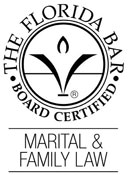
Palm Beach Child Custody Attorneys
Child custody is often one of the most divisive and emotionally charged issues in divorce and post-divorce situations.
At John F. Schutz, P. L., we understand your parental fears, concerns, and distress in resolving child custody matters, whether they involve a pending divorce, a post-divorce situation, such as a child relocation, or the aftermath of a paternity decision. These proceedings can be uncertain and stressful, threatening your parental rights.
It is essential to understand that courts operate on the principle of the child’s best interests and that courts understand that children do best when they have a continued and meaningful relationship with both parents in the event of divorce.
However, imagine having a family court judge dictate how your child will be raised. Parents who cannot settle their differences surrender a significant portion of their parental control to a judge. These judicial officials, who may not share your values or know much about you or your children personally, can make critical decisions about your family.
They can determine where your children will reside, how frequently you can visit them, and the parenting choices you can make. Once a judge issues a ruling regarding parenting, it's rarely altered. Appealing or modifying custody decisions is intricately complex and seldom yields success.
Because of all these factors, you must take as much control over custody decisions as possible. At our firm, we can help you do that through skilled negotiation with the other party, mediation, or collaborative law. Attorney Schutz is trained, respected, and highly experienced in these dispute-resolution methods, allowing you to make these critical decisions outside of court.
Contact Us for a Confidential Child Custody Consultation in Palm Beach
Child Custody in Florida
Several different types of custody arrangements can be made that parents can agree to out of court and present to the judge or that a judge can order when parents are at an impasse.
These arrangements delineate where a child will live, divide time between parental households, and authorize parental rights to make major decisions about the child’s education, religious upbringing, healthcare, and other significant life areas.
These arrangements can include:
- Shared Parental Responsibility is a legal arrangement mandated by the court where both parents preserve their full parental rights and responsibilities. The court orders the parents to discuss these matters together so that significant decisions impacting the child's welfare are made collectively.
- Sole Parental Responsibility is a court-ordered arrangement where only one parent has the authority to make unilateral decisions concerning the minor child.
Are You...
- Looking for legal advice?
- In need of a legal consultation?
- Looking for answers?
John F. Schutz, P.L. is here to help you and provide legal guidance as needed.

Hear From Our Happy Clients
"Genius divorce lawyer"
John Schutz is a brilliant lawyer. Not only did Mr. Schutz do an excellent job cleaning up the mess from the previous lawyer, he in my estimation was key in me ultimately obtaining a very good outcome. I had a very contentious divorce and the opposing lawyer was very unprofessional and somewhat abusive. Mr. Schutz through his professionalism and excellent people skills was able to reign in the opposing attorney's unprofessional conduct. Mr. Schutz ran circles around the opposing attorney as he was always prepared and was quick on his feet. He is well worth the money in my opinion. Due to his skill and the ability to outclass the opposing attorney, a trial was avoided which ultimately would have been far more costly. Highly recommend.
- Elizabeth








